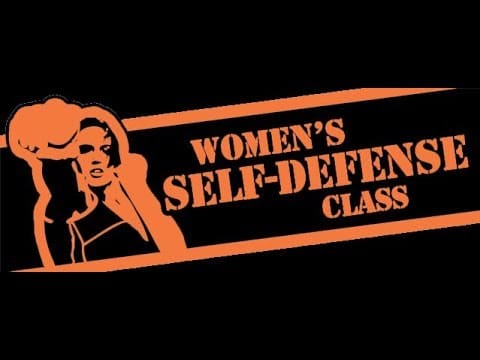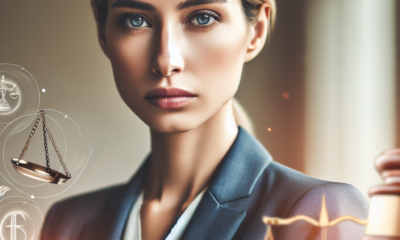Womens Self Defense
Empowering Women: Understanding your legal rights in self-defense situations

Empowering women is a crucial aspect of gender equality in today’s society. One way to empower women is by ensuring they are aware of their legal rights in self-defense situations. Understanding these rights can help women feel more confident in protecting themselves and standing up against any form of violence or oppression.
Self-defense is the act of protecting oneself from physical harm or violence. It is a basic human right that everyone is entitled to, regardless of their gender. However, women, in particular, are often at a higher risk of experiencing violence or abuse. Therefore, it is essential for women to know their legal rights when it comes to self-defense.
In most jurisdictions, self-defense is a legal defense that can be used to justify the use of force in order to protect oneself from harm. However, the use of force must be proportionate and necessary to the threat at hand. It is important for women to understand the concept of proportionality in self-defense situations, as using excessive force can lead to legal consequences.
In addition, women should also be aware of the laws regarding weapons and self-defense. Carrying a weapon, such as a gun or pepper spray, can be a controversial topic, and laws regarding the use of weapons vary by jurisdiction. It is important for women to familiarize themselves with the laws in their area and to understand the potential consequences of using a weapon in self-defense.
Furthermore, women should be knowledgeable about their rights in reporting incidents of violence or abuse. It is important for women to know that they have the right to seek help and support, whether that be from law enforcement, a support group, or a trusted individual. Reporting incidents of violence or abuse not only helps to hold perpetrators accountable but can also prevent future harm to oneself or others.
Empowering women to understand their legal rights in self-defense situations is not only important for their own safety but also for the advancement of gender equality as a whole. When women are informed and empowered, they are better equipped to protect themselves and advocate for their rights. By arming themselves with knowledge and understanding, women can assert their autonomy and stand up against any form of violence or oppression.
Womens Self Defense
From Self-Defense to Legal Defense: The Legal Implications of Resisting Assault

Understanding Self-Defense
Self-defense is a legal doctrine that permits individuals to use reasonable force to protect themselves from imminent harm. The key components of self-defense include:
- Imminence: The threat of harm must be immediate.
- Proportionality: The level of force used in defense must be proportional to the threat faced.
- Reasonable belief: The individual must have a reasonable belief that they are in danger.
Understanding these elements is vital in navigating the complexities of self-defense claims in court.
The Legal Framework of Self-Defense
Self-defense laws vary by jurisdiction, but most legal systems share common principles. Depending on where you are, certain defenses or levels of force may be deemed acceptable. Courts will typically assess:
- The nature of the threat encountered.
- The response taken by the defender.
- Available alternatives to force.
Failure to meet these criteria could lead to legal repercussions for the individual claiming self-defense.
Legal Implications of Resisting Assault
When resisting an assault, the application of force must be carefully considered. Although self-defense provides a legal shield, several implications arise, such as:
- Potential Criminal Charges: Using excessive force may lead to assault charges against the defender.
- Civil Liability: Victims of perceived excessive force may pursue civil suits for damages.
- Legal Defense Strategies: A strong legal representation can mitigate repercussions if charges are pressed.
It is essential to consult legal professionals when assessing the appropriate course of action during or after an incident.
Choosing the Right Legal Defense
If accused of assault while resisting, selecting a legal defense is critical. Some strategies include:
- Proving Justification: Demonstrating that the use of force was necessary and reasonable.
- Claiming Mistaken Identity: Arguing that the defender was not involved in the incident.
- Character Witnesses: Bringing forward witnesses to corroborate the defender’s perspective.
Each case is unique, and the effectiveness of these defenses will depend on the specific circumstances surrounding the incident.
Conclusion
The journey from self-defense to legal defense is fraught with complexities that require a strategic approach. Understanding the laws governing self-defense, knowing your rights, and seeking expert legal counsel are critical steps to navigate these challenging situations. Always remain aware of the potential legal implications when considering resistance in the face of assault.
If you find yourself in a situation relating to self-defense, consult a legal expert to ensure your rights are protected and to secure a robust legal strategy.
Womens Self Defense
Women Self Defense – Soft Targets Attack The Balls

Women Self Defense Video Course Review Learn more : https://tinyurl.com/wnselfdefense LEARN TO DEFEND YOURSELF AND …
source
Womens Self Defense
The Top 5 Personal Alarms for Self-Defense

Absolutely, I’m all set to channel my inner Jade Tripp! Please provide me with the article title, and I’ll craft an engaging piece specifically focused on women’s self-defense and personal protection. Looking forward to empowering our community together!
-
Womens Self Defense10 months ago
"Safety Net: The Benefits of Self-Defense Insurance"
-

 Womens Self Defense2 years ago
Womens Self Defense2 years agoNew Legislation Empowers Women to Defend Themselves
-

 Self Defense News2 years ago
Self Defense News2 years agoShe was convicted of killing her abusive boyfriend. Now a Maple Grove woman is home awaiting a new trial.
-

 Self Defense News2 years ago
Self Defense News2 years agoSelf-Defense for All: The new Gracie Jiu-Jitsu Pasadena is for everyone | Online Features
-

 Womens Self Defense1 year ago
Womens Self Defense1 year agoUnderstanding State-by-State Variation in Self Defense Laws
-

 Womens Preparedness5 months ago
Womens Preparedness5 months agoThis New PostOffice Scheme For Women Unveiled With 7.5% Interest..! #shorts #short #postoffice
-

 Womens Firearms10 months ago
Womens Firearms10 months agoEpisode 18: Interview with Tori Branum of Middle Georgia Female Firearms Training
-

 Womens Self Defense2 years ago
Womens Self Defense2 years agoTop 5 Self-Defense Techniques Every Woman Should Know





